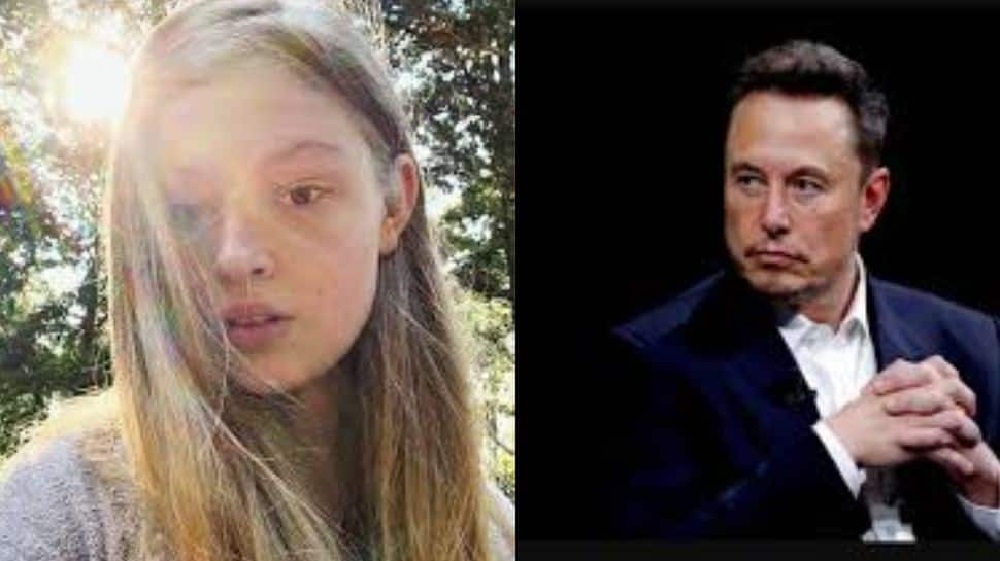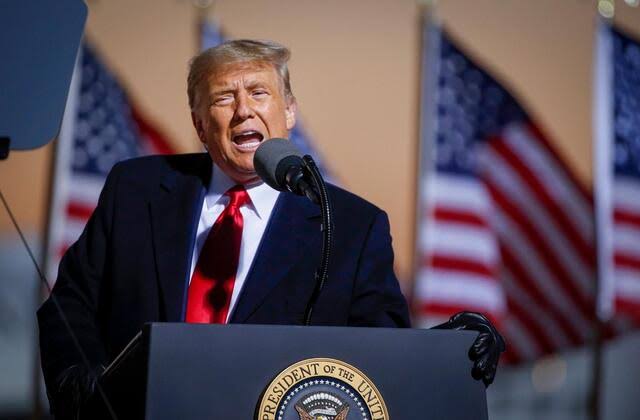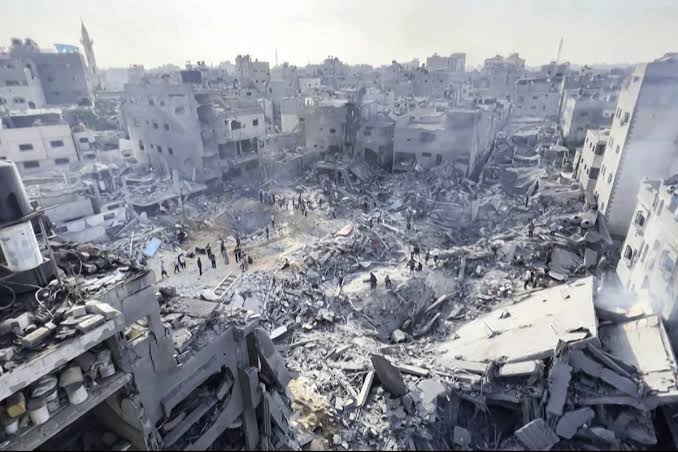Foreign
Elon Musk’s transgender daughter announces plans to leave US after Trump’s victory

Vivian Wilson, the 20-year-old estranged transgender daughter of tech mogul Elon Musk, has announced plans to leave the United States following Donald Trump’s recent election victory.
Wilson shared her decision on Threads, expressing her discomfort with the political landscape under Trump’s return to office, according to a report by the UK’s Daily Mail.
“I don’t see my future in the United States.
“I’ve thought this for a while, but yesterday confirmed it for me. Even if he’s only in office for four years, even if anti-trans regulations don’t materialise, the people who voted for this aren’t going anywhere anytime soon,” she wrote.
Vivian, who was born Xavier Musk in 2004, filed to legally change her name and gender in April 2022, requesting to sever ties with her father by adopting her mother’s maiden name, Wilson.
In the court filings, she was quoted as saying, “I no longer live with or wish to be related to my biological father in any way, shape, or form.”
Musk, who openly supported Trump and fathered 12 children across three relationships, has been outspoken about his strained relationship with Vivian.
Referring to her as a “communist” who views wealth as inherently evil, Musk, 53, claimed he had been misled into consenting to her use of puberty blockers.
“I didn’t fully understand what was happening at the time; it was during COVID, and I was told Xavier might commit suicide,” he said.
Musk has previously described puberty blockers as “sterilisation drugs” and labelled gender dysphoria as “incredibly evil,” arguing that those promoting it “should go to prison.” He claimed, “I lost my son… They call it ‘deadnaming’ because your son is dead, killed by the woke mind virus.”
In response to Musk’s comments, Vivian stated that her father had little involvement in her childhood and often criticised her for her “femininity and queerness.”
“He doesn’t know what I was like as a child because he simply wasn’t there.
“I was relentlessly harassed for my femininity and queerness. I’ve been reduced to a stereotype. I think that says a lot about how he views queer people and children in general,” she stated.
Foreign
There will be no same sex marriage again -Trump vows to end ‘transgender madness ‘

President-elect Donald Trump on Sunday pledged to “stop the transgender lunacy” on day one of his presidency, as Republicans — set to control both chambers of Congress and the White House — continue their push against LGBTQ rights.
“I will sign executive orders to end child sexual mutilation, get transgender out of the military and out of our elementary schools and middle schools and high schools,” the president-elect said at an event for young conservatives in Phoenix, Arizona.
He also vowed to “keep men out of women’s sports,” adding that “it will be the official policy of the United States government that there are only two genders, male and female.”
Speaking to the AmericaFest conference in a border state he easily carried in the November election, Trump further promised immediate measures against “migrant crime,” vowed to designate drug cartels as foreign terrorist organizations, and doubled down on his talk of restoring US control of the Panama Canal.
Transgender issues have roiled US politics in recent years, as Democratic- and Republican-controlled states have moved in opposite directions on policy such as medical treatment and what books on the topic are allowed in public or school libraries.
Last week, when the US Congress approved its annual defense budget, it included a provision to block funding of some gender-affirming care for the transgender children of service members.
In his speech Sunday, which amounted to something of a victory lap, Trump made expansive promises for his second term — and drew a dark picture of the four years preceding it, under President Joe Biden and Vice President Kamala Harris, the latter of whom he defeated in the 2024 election.
“On January 20, the United States will turn the page forever on four long, horrible years of failure, incompetence, national decline, and we will inaugurate a new era of peace, prosperity and national greatness,” Trump said, referring to his swearing-in.
– ‘Golden age’ –
“I will end the war in Ukraine. I will stop the chaos in the Middle East, and I will prevent, I promise, World War III.”
He added: “The golden age of America is upon us.”
Foreign
Fresh Israeli Airstrikes In Gaza Kill 25 Palestinians Including Children

Fresh Israeli airstrikes in the Gaza Strip have killed at least 25 Palestinians, according to medics.
The casualties on Friday included at least eight people in an apartment in the Nuseirat refugee camp and 10 others in the town of Jabalia, among them seven children.
Efforts to broker a ceasefire between Israel and Hamas have yet to succeed.
Sources involved in the negotiations told Reuters on Thursday that Qatar and Egypt had resolved some points of contention but key issues remain unresolved.
Israel launched its assault on Gaza following Hamas-led attacks on Israeli communities on October 7, 2023.
The attacks resulted in the deaths of 1200 people and the abduction of over 250 hostages, according to Israeli reports.
Israel states that approximately 100 hostages are still being held, though it is unclear how many remain alive.
Gaza authorities report that Israel’s ongoing campaign has killed more than 45,000 Palestinians and displaced the majority of the 2.3 million residents.
Much of the territory has reportedly been devastated by the conflict.
Foreign
Biden signs bipartisan funding bill to keep government open

President Biden signed the stopgap funding bill that will keep the government open until March, punting the thornier issues surrounding the nation’s finances to the incoming administration of President-elect Donald Trump.
A bloated 1,500-page funding measure was exploded by Trump and his top ally Elon Musk earlier this week as they demanded a pared-down version.
The parties were able to cobble a stopgap bill together Friday evening, which passed the Senate early Saturday morning.
The package funds the government at current levels until March 14, 2025, and includes $100 billion in hurricane relief funds and $10 billion in aid to farmers.
With the stopgap funding only running until March, an almost certain clash is looming between Trump and GOP spending hardliners when Congress reconvenes in January.
“The bipartisan funding bill I just signed keeps the government open and delivers the urgently needed disaster relief that I requested for recovering communities as well as the funds needed to rebuild the Francis Scott Key Bridge,” Biden said in a statement after inking the deal.
The post Biden signs bipartisan funding bill to keep government open appeared first on New York Post.
-

 Metro13 hours ago
Metro13 hours agoAppeal Court Affirms 12-Year Jail Term for Businessman Over $1.4 Million Fraud
-

 News13 hours ago
News13 hours agoAgain, Senator Manu shares 10,000 bags of rice, 15,000 cartons of spaghetti, transport fares to constituents (Photos/Video)
-

 Sports13 hours ago
Sports13 hours agoAlex Iwobi Spreads Holiday Cheer with Free Food Donations in East London
-

 Entertainment13 hours ago
Entertainment13 hours agoPortable’s Baby Mama Honey Berry and New Man Dance Romantically to Singer’s Song, Tag Him to Post
-

 News20 hours ago
News20 hours agoJust in: Tinubu exposes those behind deadly stampedes
-

 News12 hours ago
News12 hours agoOutcry against Tax Reform Bills misplaced, says Senator Umeh
-

 News12 hours ago
News12 hours agoFG gives banks, telcos six-month ultimatum on N250bn USSD debt
-

 News12 hours ago
News12 hours agoCDS Musa sets high bar for newly-decorated Major Generals








